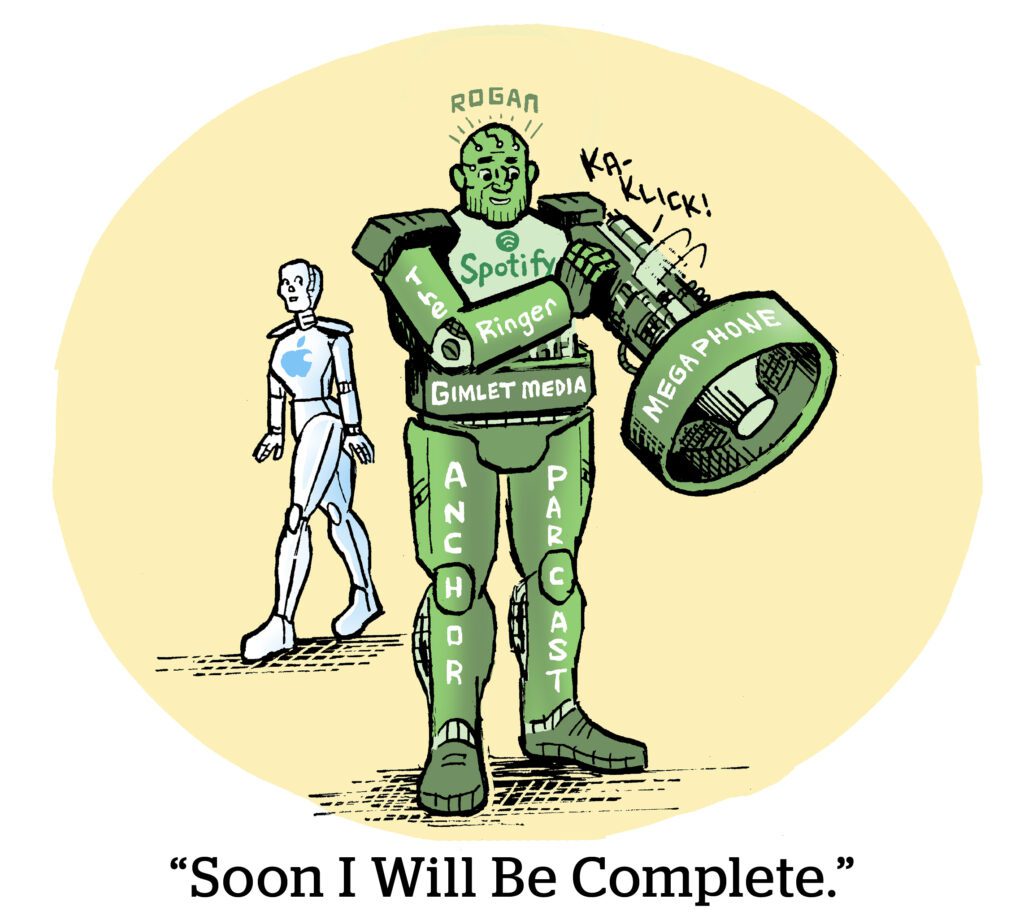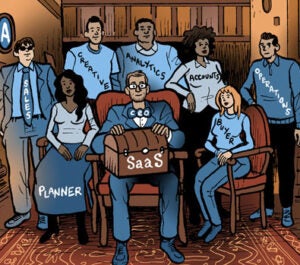You Down With UCP?
The IAB Tech Lab isn’t going to let some agent replace it as the de facto standards-setter for online advertising.
In August, the Tech Lab launched the AI Content Monetization Protocols Working Group. And yesterday it announced that LiveRamp has “donated” a framework for how AI agents communicate and recognize human users and other agentic tech in online advertising.
The product, dubbed Universal Context Protocol (UCP), is a way to identify users or agents without disclosing raw data. It can also interpret what a user or agent is doing and recognize how they respond to ads.
The big efficiency gain, as Tech Lab CEO Anthony Katsur elaborated in a post on X, is that the UCP would mean companies aren’t “exchanging massive data payloads” every time AI agents interact. Rather, data would be passed through concise, compacted fields.
The Tech Lab also has a vision for how the protocol will help with consent management practices.
“The industry will need to collectively agree on what consent means when a consumer’s only point of contact with a company is through a single agent-to-agent interaction,” Katsur writes. “UCP’s specifications for privacy-safe signal exchange, consent controls and agentic attestation help address these fundamental questions.”
The $ In $potify
One drawback of the video podcast trend? Producing and hosting video is expensive.
Spotify’s video push has been successful so far, company leadership told investors during Tuesday’s Q3 earnings call. The platform now hosts almost 500,000 video podcast shows, and time spent with video content has more than doubled year over year.
But according to the shareholder deck, although revenue for Spotify’s Premium tier grew 9% YOY to more than $3.83 billion (compared to just over $3.52 billion in Q3 2024), Premium gross margin declined YOY due to “video podcast costs.”
On the other hand, Spotify’s ad-supported tier tells a very different story. Revenue is down 6% compared to the year-ago quarter, from $472 million to $446 million – but the gross margin increased at an accelerated rate.
Spotify’s advertising business has been in the midst of a reset recently, Alex Norström, the company’s chief business officer and co-president, told investors. But it is growing, in no small part due to new DSP partnerships with Amazon and Yahoo.
Which, yes, means that Spotify’s video ad inventory will now be available to advertisers on a programmatic basis. How else is Spotify going to pay for all that video in the first place?
Coke Pokes The Gen-AI Bear
Coca-Cola has ditched its polar bears for a new holiday tradition: AI-generated ads.
Coke launched another holiday ad campaign in partnership with AI studio Secret Level, The Hollywood Reporter reports – despite the backlash from last year’s attempt.
Critics panned the uncanny human characters and questionable physics in Coke’s 2024 holiday spot. Not to mention the labor implications. “Coca-Cola is red because it’s made from the blood of out-of-work artists,” posted animator Alex Hirsch on X.
Secret Level CEO Jason Zada claims that “a lot of the people complaining last year were from the creative industry who were […] afraid for their jobs.” Uh, yes. However, a selling point for Zada is that Coke’s generative-AI holiday campaign required just 20 people, whereas a similar campaign would previously have called for 50.
Coke, meanwhile, has made a few creative concessions. In an apparent nod to complaints about unsettling AI-generated people, this year’s campaign only includes anthropomorphized animals (plus Santa Claus).
Mondelez likewise recently said it would avoid using AI-generated humans in ads.
But the AI creative trend isn’t slowing down.
“The genie is out of the bottle,” says Coke’s generative-AI lead Pratik Thakar, “and you’re not going to put it back in.”
But Wait! There’s More!
The IAB Tech Lab is planning to form a “Programmatic Governance Council” to set clearer transparency rules for the industry. [Digiday]
People Inc. strikes a deal to participate in Microsoft Copilot’s pay-per-use AI marketplace for publishers. [Barron’s]
Speaking of People Inc., formerly known as Dotdash Meredith: Newspaper giant Gannett has undergone a similar rebranding, announcing its new identity as USA Today Co. [Adweek]
How the Common Crawl Foundation feeds data to the biggest AI tech companies. [The Atlantic]
OpenAI thinks it would be a great idea for brands to rent their mascots for use in the Sora 2 video-generation app. [WSJ]
Instacart debuts its own white label AI shopping chatbot. [Bloomberg]
British news publication The Times now uses AI to generate synthetic audiences to serve as focus groups. [Digiday]
How can publishers succeed on Reddit? By not “disrupting the vibe.” [Press Gazette]
Thanks for reading AdExchanger’s Daily News Roundup. Want it by email? Sign up here.














